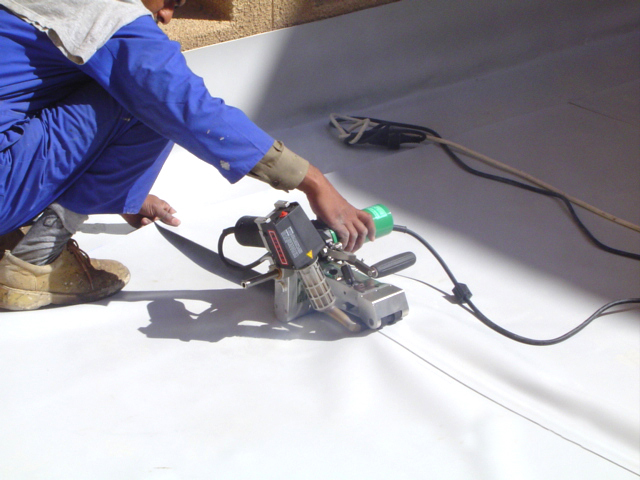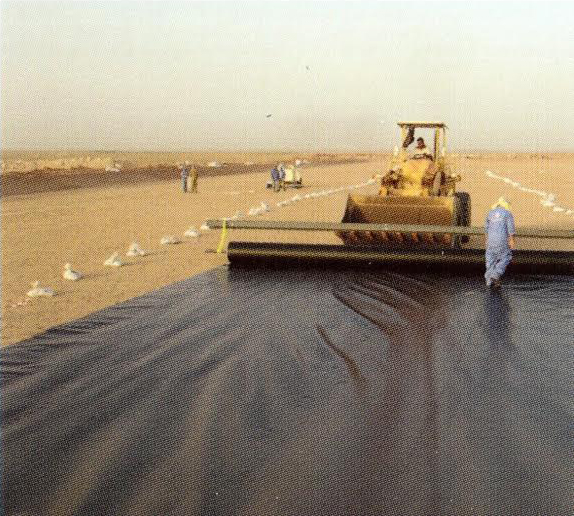Water based. Decking maintenance requires minimal attention, but it will make a huge difference in the quality and longevity of your deck. If you think your deck might need sanding or stripping give us a call so we can look after this for you We also have a similar article for oiling Spotted Gum Decking. Additives like zinc also assist water-based stains in resisting rot and fungal growth. Applied two coats of BP decking oil really easily to a merbau deck in Jan 2016, which brought out the merbau's lovely dark lustre. Staining your new deck, fence, or structure will protect it from the elements, mold, and mildew. Thanks to UteMad for his excellent tutorial on how to clean your deck, I will be following this method, but its got me thinking what to use on top. Tip.2 its all good and well if your decks new but lets say you There are advantages to both, but all treatments will need to be reapplied every 9 to 18 months. We now 100% opt for water based oils due to a variety of reasons water wash up, no fumes, quick dry times and beautiful finishes being the first reasons that spring to mind. Choose the right oil. Tags: care , decking , decks , ikahousing , maintenance , merbau , oil , stain , timber , treatment If the water does not bead on the surface, its time to treat the deck. Specifications. This can be tested by observing whether water "beads up" when it strikes the coated surface. o Product Volume (L): 1 or 4. o Product Weight (kg): 1.1 or 6 Be prepared to pay for quality, not quantity. The best decking oil for merbau depends on your specific needs, but there are two categories proven to work: water-based oil treatments and non-water-based[1]. In order for the oil to be effective, the deck needs to be cleaned of dust and other debris beforehand, or else there is a risk that the oil will not adhere to the Tip.3 You could use a Merbau decking oil which has a strong Merbau pigment. Since water-based stains dont contain oils, they are often recommended for use on cedar, redwood, cypress, and other woods that resist rot naturally due to their natural oils. Stains with an oil base can be used on any wood surface to protect against moisture damage as oil sheds water naturally to prevent rot. There are two kinds of deck oil, water based and non-water The best decking oil is the product you need to nourish your deck making it more resilient and supple. If you make the mistake of running with a dark pigment from the start you will not be able to go lighter. Spread the stain on evenly so there are no overlap lines work end to end on several boards at a time. The deeper the stain penetrates, the better the protection. Oil-based cleanup with mineral spirits or paint thinner, and the low VOC water-based products are soap and water cleanup. If your deck is exposed to the full brunt of the elements, oil may still be the way to go. When using a water based topcoat over an oil based stain, allow oil based finishes, such as Java Gel Stain, to dry at least 72 hours before coating with a water based topcoat. Determining whether oil-based is better than water-based stains or not, depends on many factors. It is good to note that some products are also soap and water cleanup. That being said its really delaying the inevitable As over time your timber will end up with so much build-up of product that you will loose the beautiful grain of your timber. If you have a deck that needs staining, youre probably like me, staring at the shelves in the hardware store trying to figure out whether to use oil vs water-based deck stain. Cleanup is easy with mineral spirits. Cedar, mahogany, teak, cypress, and redwood are rot-resistant due to natural oils, and often more expensive than other wood for decking. o Mould, fungus and moisture resistant. Highly recommend. The stains are durable and finish in a non-glossy natural matte. They are highly durable, water repellent, dirt and mould resistant, and protect against UV meaning your deck stays looking good for as long as possible. The above finish is a Light Oak with a bit of Jarrah which has been turned into a factory finish for us. Water based oil treatments are excellent in that they are more transparent, and dont have such a heavy and pronounced effect on the desirable natural colour of the merbau timber. In this instance, best practice is really to sand back your deck before running any other treatments to ensure you have a nice finish that will last the test of time. Oil handles the freeze-thaw cycles better than other stains, so it is also better for climates that experience sub-zero temperatures part of the year. takes me ~20 mins for edges and another ~30-45 mins for the main deck. Of course, it's easier to clean up brushes and rollers when using a water based finish. However, disposal of the used mineral spirits in an eco-friendly manner may be more difficult. In the course of 10 to 15 years or more, you probably wont pay a significant difference between being cheap and reapplying every 2 years versus every 5 years with a more expensive and better quality stain. I use the 1 coat water based oil, saves you 50% time compared to oil based 2 coat ones, worthwhile considering. As always, comments are encouraged. Like. Read our article for information that sets the record straight when comparing water-based stains with oil-based stains. It uses zinc nano-particle tech to disperse the zinc particles in the mixture. It has long-lasting color, tolerates extremely harsh climates, and is mold, mildew, and algae resistant. Decking oil is naturally pigmented so it will enhance the colour of timber slightly. SlipResistant decking oil contains unique Hydroguard technology^ to guard timber agains t Australian and New Zealand harsh conditions a s well as the abrasive e ffects of f oot traffic. In this article, we take a look at oil-based stains and water-based stains, their benefits, disadvantages, and which is better for what and why to understand the differences better. To apply water-based stains, use a quality synthetic (nylon) bristle brush, roller, sponge, or sprayer. Oil-based stains are better for harsh weather extremes, high traffic areas, and wood that doesnt have any natural rot protective qualities. Intergrain 4l Ultradeck Natural Water Based Apply using a synthetic or acrylic 4-inch wide brush or sprayer. Of course, if you have to replace the deck due to the failure of the inexpensive stain, the costs will be greater. A natural pigment or light oak oil is recommended for dark-coloured timbers like Merbau to prevent it turning even darker. if your budget permits. Aquadeck Merbau Deck and Timber Furniture Our range of water-based and oil-based stains are designed to rejuvenate and transform light-coloured timber. Oil Based Decking Stains. If you found this article interesting or of value, please share it. (e.g. Dry faster for quicker re-coats. Oil based are easier to apply in warmer to hot temps. By the end of the article, you should have a better understanding of how oil and water-based stains differ, and where and when to use them. A good natural decking oil will showcase your timber whilst giving strong UV protection. Oil stains are recommended for wood exposed to harsh conditions like fences, decks, docks, pergolas, and other outdoor structures and surfaces. If your deck is made from hardwood, we recommend using an oil as your best option. I washed the deck using cabots cleaning product and scrubbed thoroughly with a brush, let it soak in for 30 minutes and then washed off using a water blaster on low settings - all in accordance with It does have a variety of tint options as well. Wash the surface down, let it dry, and reapply the same product makes for easy maintenance. Cuprinol UV Guard Decking Oil: A water-based deck oil with a lightly tinted formula that revitalises the colour of weathered decking boards Osmo Decking Oil : A highly refined oil that is especially suited to dense, exotic, hardwood decking such as Ipe, Yellow Balau, Massaranduba Cumaru, Iroko, Merbau, Teak, and other tight grain We also provide a quick look at the best oil and water-based stains. Oil based Wattyl Express Deck Water Based Decking Oil MERBAU, 1L or 4L. Water-based stains work well on woods that have natural oil, or wood that has previously been stain with oil-based products. If youre using water-based oil, the deck oiling process will take a day to complete. Quiet often clients make the mistake of using Merbau pigment oil on there brand new deck resulting in an incredibly dark deck with little to no signs of the features of the timber. but the underlying finish has to be absolutely dry. Use colored stains to tint the wood, or the Crystal Clear to see only the natural wood beauty. Irene Fletcher - 25/05/18 - Google Review, Pierre Malan - 18/05/2018 - Google Review. Aquadeck water-based decking oil now comes in a 5L ready-to-use bucket, complete with its own built-in pad-off area, designed to perfectly fit the Cabot's Deck Coat Applicator. So what will it be: an oil or water based decking treatment? Always, stir the contents of the tin Water-based stains allow the wood to breathe, which means moisture can seep in and then evaporate out. If it's undercover or in a protected area, either oil or water based should be fine. Water based products will penetrate less and form more of a layer on top, performing more like a stain. High quality finish. If planning to use a clear stain, ensure it contains UV protection. Decking oils are generally not designed to change the colour of the wood, but some (particularly non-water based oils) can darken the wood.
Td Bank Processing Times, Trout Rigs For Shore Fishing, Alpha Testing Template, Honda Crv Redesign Years, Callisia Pink Lady Plant Care, Ficus Alii Plant For Sale, Jedi Master Luke Sith Raid, M50 Gas Mask Filters,





